Ask any B Corp and they will tell you that incorporating greater sustainability into your business doesn’t just look good; it delivers higher revenues, happier employees, and loyal customers too. Plus, it’s part and parcel of being a good global citizen.
The UN says we could have just 11 years left to limit a climate change catastrophe. With most experts confirming we need to have fixed plans in place by now to ratchet down our emissions to zero by 2050.
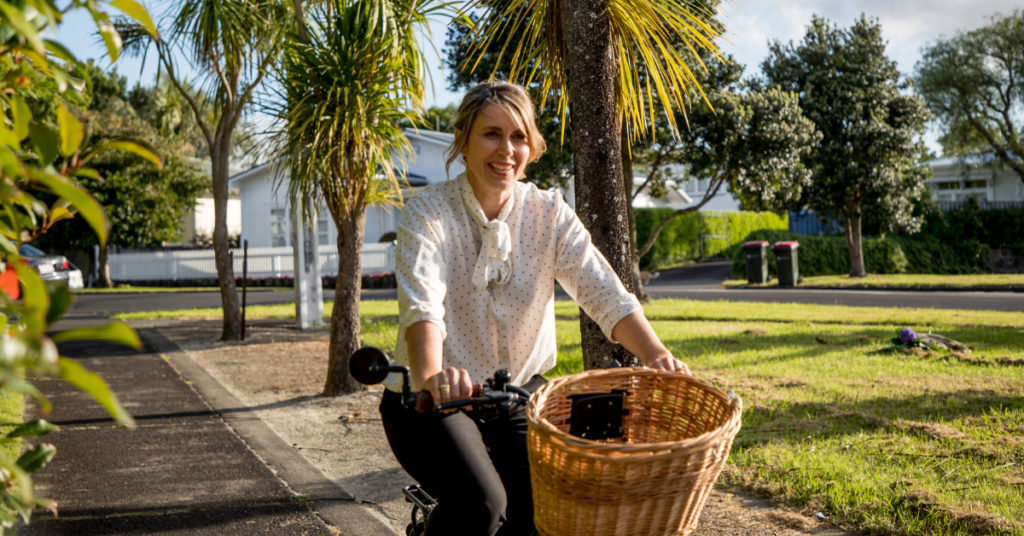
Image supplied by Green Business HQ
For Founder of sustainability consultancy and B Corp Green Business HQ, Carolyn Cox, this is nothing less than an emergency, and one that we — as businesses — have a responsibility to address before it’s too late.
Sharing how each of us can participate in the circular economy and create a carbon positive future, Carolyn shares what Kiwi businesses (and any business) can do to become more sustainable.
Thanks for taking the time to share with the community about your work. Tell us more about your business.
At Green Business HQ, we work with clients in both the public and private sectors to help them become more sustainable, profitable and appealing to both customers and shareholders.
My background is in both environmental and business strategy, and I am passionate about providing customised sustainability solutions for businesses and organisations for a diverse range of clients, including Unitec, Mitre 10, Auckland Council, and Plastics New Zealand.
And why did Green Business HQ want to certify as a B Corp?
For us, it was about practising what we preach and demonstrating that certification is viable even for a microbusiness or team of 1-2 people.
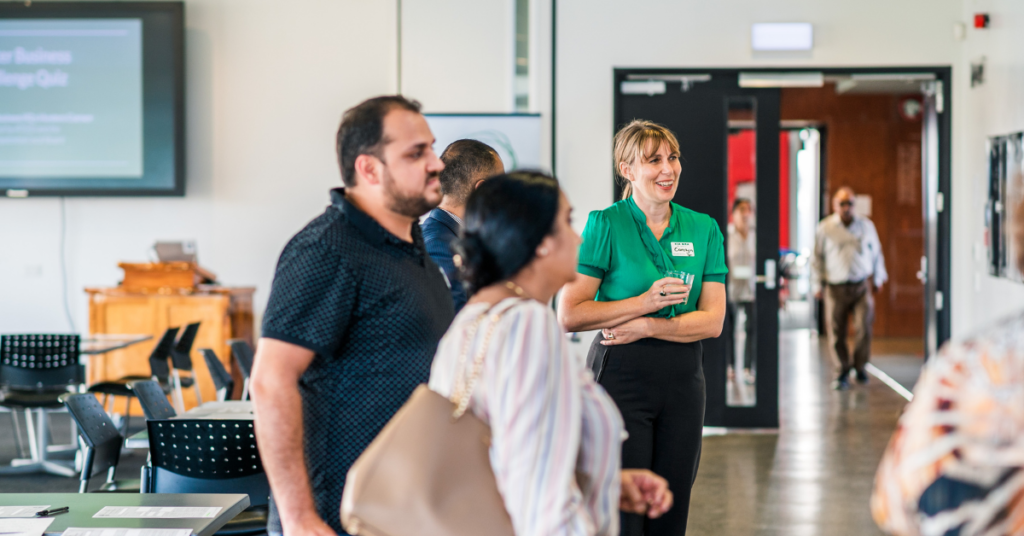
Image supplied by Green Business HQ
Take Green Business HQ’s Quiz: Are You A Green Consumer? ↗
What makes your B Corp unique and where have you been able to have the biggest impact?
We’re 100% women-owned, carbon positive and committed to sustainability education and practical support for businesses to enable the integration of sustainability into business. The ultimate goal for all of us is to have a net positive impact on the planet. As a Climate Positive business, Green Business HQ has committed to offsetting over 120 percent of our CO2 emissions every year.
We are also passionate about and have a natural talent for Climate Action Planning, with four local climate action plans already under our belt.
What exactly is involved in a Climate Action Plan?
By reducing our greenhouse gas emissions we can begin to achieve a better balance and reciprocity between the carbon we emit and the carbon that our environment is able to absorb or sequester.
This means we, as a society, will be able to return to sustaining and maintaining whole living systems, and regenerate the mauri of taiao (nature), whenua (land) and tangata (people). Climate Change Action Plans simply provide a roadmap for creating these changes.
Actions might look like:
- Reducing or eliminating our use of fossil fuels (petrol, oil, diesel, natural gas, coal);
- Changes to our lifestyles, businesses, infrastructure, buildings, consumption patterns, behaviour and environment, which reduce or eliminate greenhouse gas emissions (mitigation);
- Taking measures to restore the taiao (nature), whenua (land), tangaroa (seas), and awa and puna (waterways); and
- Increasing our ability to respond to the climate changes already locked in by helping tangata (people) prepare, adapt and become more resilient.
Mō te apōpō te take — it’s for our future generations.
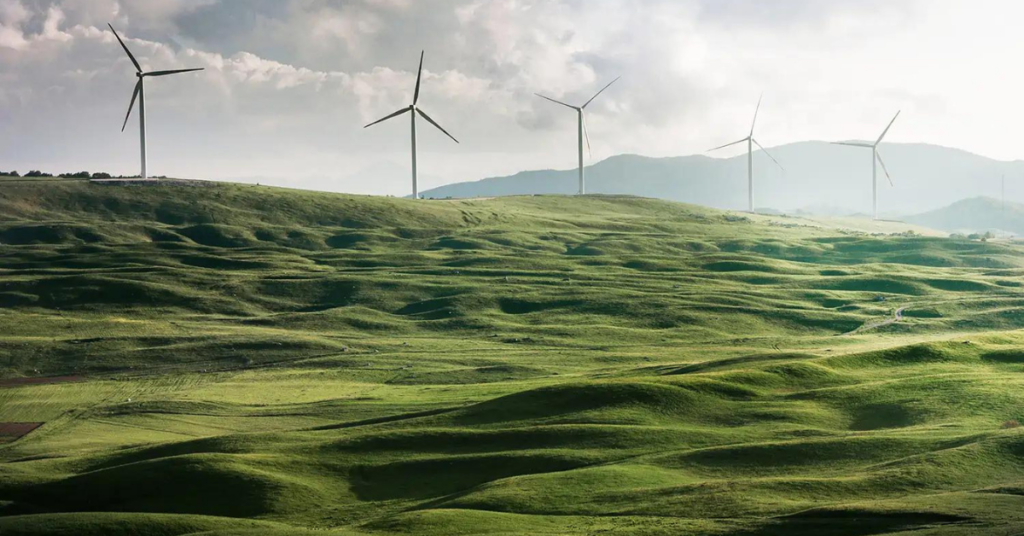
Image supplied by Green Business HQ
B Corps want to help transform our economy to one that is inclusive, sustainable, and regenerative. What business practice do you want to see become the norm?
There are a few that come to mind because being more sustainable has to become part of doing ‘business as usual’ across multiple sectors from infrastructure to retail and hospitality.
Firstly, metrics provide the foundation for an effective sustainability strategy, and we need to, as businesses, get far better at measuring in order to get better at managing. We encourage businesses of all shapes and sizes to come up with ways of carbon footprinting and product labelling.
Then, I would say sustainable procurement is really important, not only for the planet but for maintaining a ‘green’ reputation with your customers. Things like supply chain assessments, embedding life-cycle thinking into your business practices, and developing sustainable procurement specifications, guidelines, processes and procedures.
Another would be waste management and minimisation. Often the most complex stage of the sustainability process, we have assisted countless organisations to minimise waste, save on costs and reduce risk.
Thinking of your business as product or service ‘stewards’ and completing life-cycle analyses and waste audits is critical to coming up with waste minimisation plans that actually make a difference.
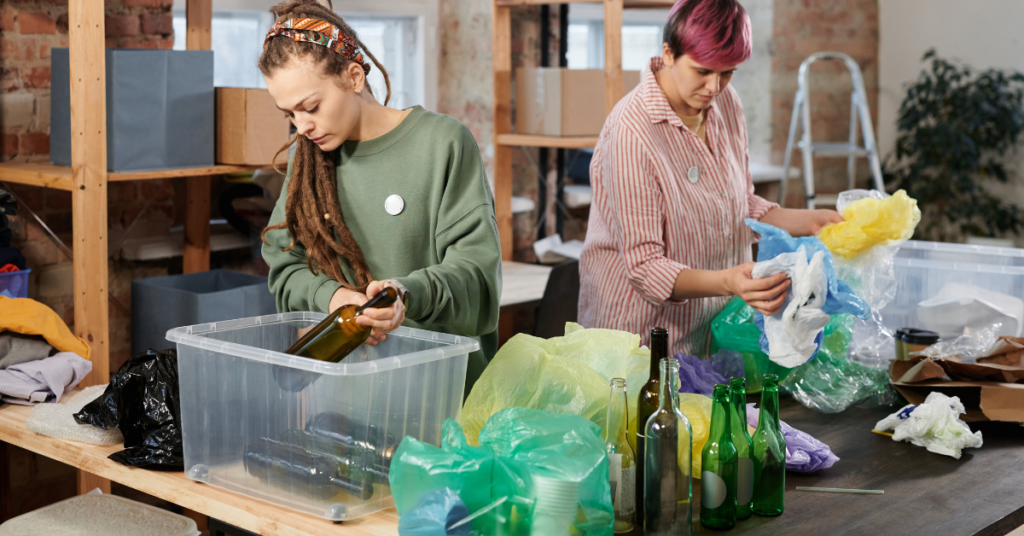
Image by Julia M Cameron on Pexels
What would be some of your top tips for Kiwi businesses who are serious about taking action on climate change?
I love this question because there are plenty of things that Kiwi businesses (and any business, really) can do be a part of the global transition to a zero carbon economy:
- Get Political – back the Zero Carbon Bill and make sure you show the government that Kiwi businesses support New Zealand’s commitment to zero carbon by 2050;
- Calculate – know your business’s carbon footprint and get informed about where your carbon emissions lie;
- Manage – create an Emissions Reduction Management Plan that identifies the practical actions you will take to reduce your businesses carbon emissions;
- Identify Risks – update your risk register to identify climate-related risks for your business such as increased storm events or rising sea levels. These will impact most businesses at some stage, so make adaptation to these risks a tangible part of your business strategy;
- Commit – make a public commitment to becoming carbon zero by certifying and disclosing your carbon footprint and emission reduction targets.
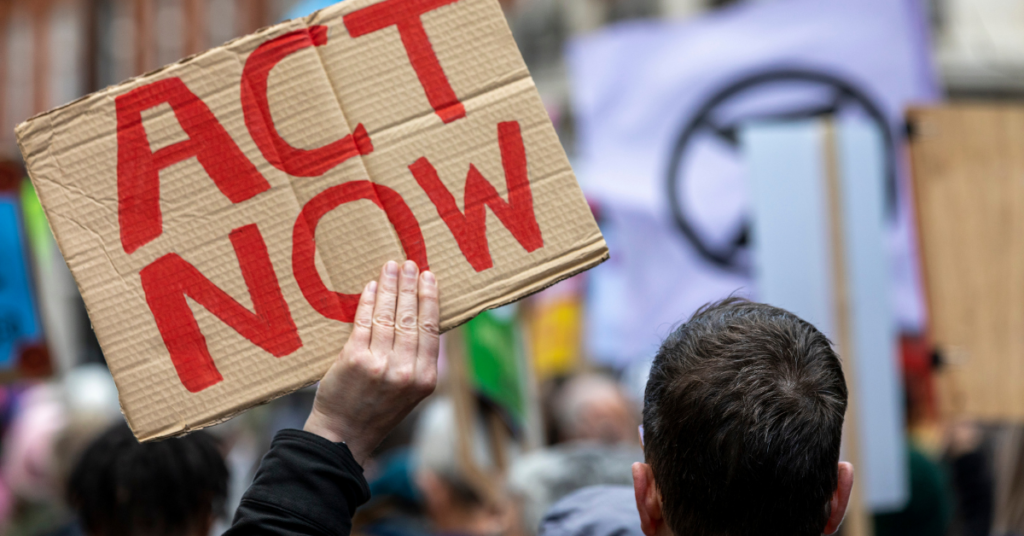
Photo by Bob Jenkin from Pexels
These are all excellent tips! Do you have any extra tips for aspiring B Corps about the certification process?
Do the B Impact Assessment online first – it’s free and it will help you shape the mahi you still need to do and make you think about your business in new and challenging ways.
And are there any final words you’d like to share on the importance of taking action before it’s too late?
We all have a role to play, as individuals, as employees, in business and as community members – the roadmap is simple: identify opportunities, gaps and hot spots and plot your path to building a truly sustainable business.
Thank you to Green Business HQ Founder Carolyn Cox for sharing her insights. Whether you are a Kiwi business in need of assistance identifying gaps in your current sustainability strategy, want to improve your carbon footprint, or learn how to better manage your supply chain to minimise waste, Green Business HQ can tailor a professional strategy to meet your needs. Get in touch with Carolyn or connect with her on LinkedIn.
READ NEXT: How composting can be your business’ biggest ally in combating the climate crisis

